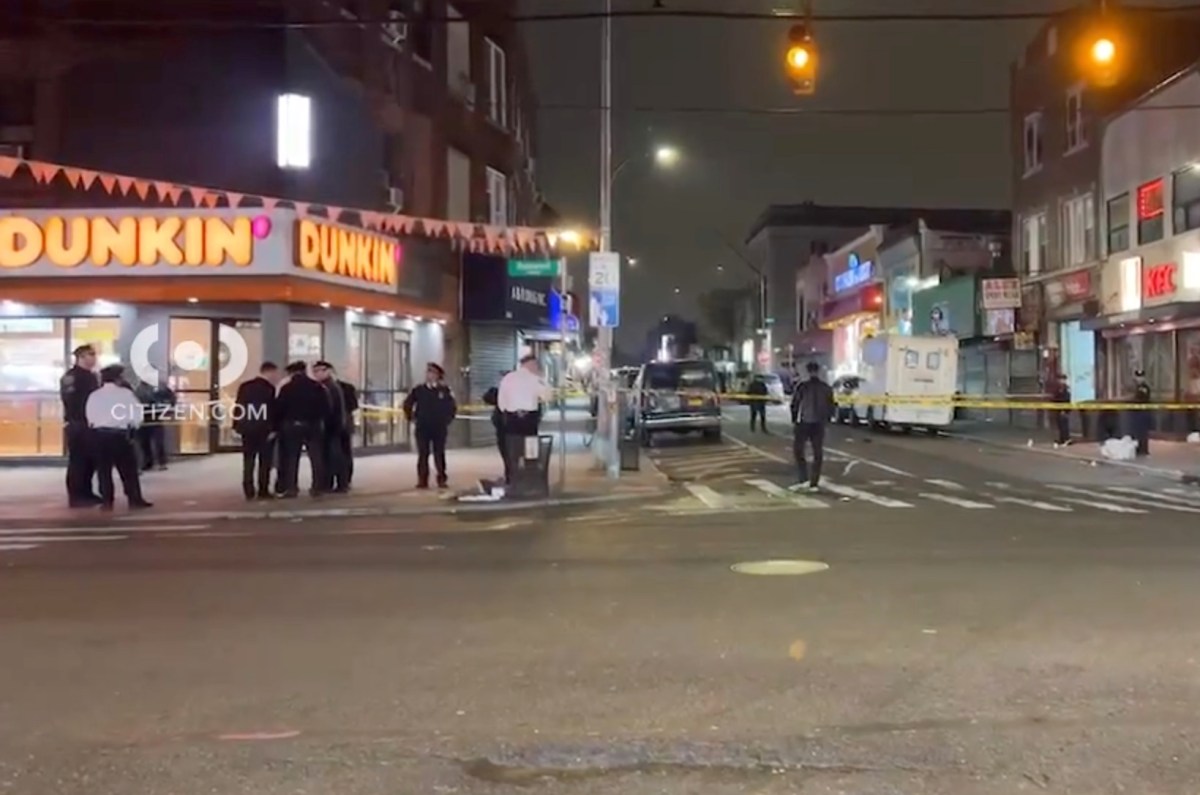Queens District Attorney Melinda Katz filed motions with defense attorneys to vacate two wrongful convictions allowing two men to walk out of Queens Supreme Court as free men on Thursday, Nov. 17.
In both cases, new evidence was discovered by her Conviction Integrity Unit (CIU) after “exhaustive investigations,” Katz said, adding that the CIU has vacated 13 convictions since it was formed soon after she took office in 2020.
“For there to be justice in the criminal justice system and public faith in its outcomes, it is incumbent upon us as prosecutors to follow the facts to wherever they lead,” Katz said. “Presented with credible new evidence that undermined the integrity of the convictions against these men, we could not let miscarriages of justice stand.”
Shamel Capers, now 24, was behind bars since his arrest in the fatal shooting of 14-year-old D’Aja Robinson on May 18, 2013, when 10 .40-caliber pistol rounds were fired into a crowded city bus in a gang-related dispute. Robinson was an innocent bystander who was on the bus heading home from a friend’s birthday party. Katz said her senseless murder devastated her close-knit family and touched her community deeply, noting that the corner of Sutphin Boulevard and Rockaway Boulevard is co-named in her honor.
Gang member Kevin McClinton was arrested for Robinson’s murder after an eyewitness, Terrence Payne, told police and prosecutors that he witnessed McClinton fire “all 10 shots” into the bus. A year later, Capers was arrested based on a new eyewitness account from a second gang member, Lael Jappa.
In exchange for a significant sentence reduction on unrelated felony charges, Jappa testified at Capers’s trial that he saw Capers fire first into the bus and that McClinton then took the gun from Capers and continued firing. Capers was convicted largely based on Jappa’s eyewitness account and was sentenced to a prison term of 15 years to life.
CIU reinvestigated the case, prompted by information from counsel at Debovoise and Plimpton citing, among other evidence, a recantation made by Jappa to a defense investigator. Over the course of a year, the CIU interviewed dozens of witnesses, including Jappa, who again recanted his testimony implicating Capers.
Katz explained that while such recantations are rightly viewed with skepticism, Jappa’s claim that he testified falsely is corroborated by recorded phone calls uncovered during CIU’s investigation. Specifically, recorded phone conversations Jappa had from jail in 2014 with his mother, whom he repeatedly told that the information he was providing to police and prosecutors about Capers was false. There is no evidence that anyone other than Jappa and his mother was aware of what was said until recordings of the calls were reviewed eight years later.
Capers, who was 15 years old at the time of the shooting, was released after being incarcerated for more than eight years on the murder charge.
“In the case of the murder of D’aja Robinson, the solely culpable individual is serving a sentence of 25 years to life in prison,” Katz said. “My thoughts today are with D’aja Robinson’s family. This motion might not be easy for them to accept, but they can take comfort in knowing that the solely culpable individual, Kevin McClinton, will be spending a very long time in jail, perhaps the rest of his life.”
In the second case, Darryl Williams was convicted and sentenced to 15 years in prison in connection with a February 2013 robbery at a Queens Village storage facility. A week before the robbery, Williams, accompanied by a friend, had rented a storage unit at the facility.
The following week, four men entered the storage facility and robbed one of the employees — leaving him bound with tape in an empty unit. A second employee of the storage facility identified Williams as one of the four men involved, recalling him from the week before.
After his arrest, Williams urged his attorneys to obtain surveillance footage from the storage facility, as well as cellphone location records, which he said would prove that he was home in Brooklyn on the phone with his superintendent on the afternoon of the robbery. Williams’s attorneys obtained call logs for Williams’s phone that showed a call that coincided with the time of the robbery, but they did not get cell site location records.
At Williams’s trial, no alibi evidence was presented and he was convicted based primarily on the testimony of a single eyewitness. Williams’s appellate attorneys continued to investigate the case and were able to obtain cell site location records showing that during a 35-minute phone call that coincided with the commission of the robbery, Williams’s cellphone was connected to a cell tower in Bedford Stuyvesant, Brooklyn, one-half mile from his apartment and 10 miles from the scene of the crime.
Additionally, Williams’s superintendent confirmed that the call was from him. The CIU reinvestigated the case, interviewing numerous witnesses and confirming the cell site location data. Based on the CIU’s findings, Katz filed the motion to vacate his wrongful conviction, which was granted.






























